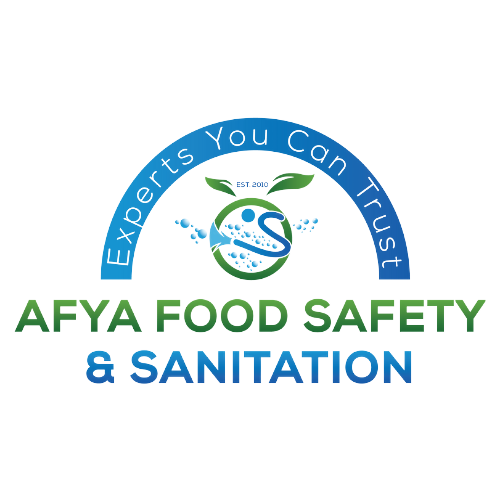
Please Wait For Loading

Please Wait For Loading
Maryland, MD USA
+1 (443) 666-9132
info@afyafoodsafety.com
Opening Hours: 9:00 AM - 5:00 PM
Copyright ©Afya Food Safety all rights reserved.
You can also reach us via Phone: +1 443 666 9132 or via Email:info@afyafoodsafety.com
The Crucial Role of Pest Control and Management
In the intricate web of maintaining food safety, one often overlooked yet critical aspect is pest control and management. The presence of pests in food establishments poses a significant threat not only to the quality and integrity of the food but also to the health of consumers. In this blog, we will delve into the vital role of pest control in ensuring food safety, exploring the interconnectedness of these two elements.
The Impact of Pests on Food Safety
Pests, including rodents, insects, and birds, are a threat to food processing facilities, restaurants, and households. They pose immediate dangers of food contamination with bacteria, viruses, and parasites or physical contamination from droppings, feathers, or body parts. Additionally, pests can cause damage to food packaging, leading to exposure and spoilage.
Rodents, in particular, are notorious carriers of diseases such as salmonella and leptospirosis. Cockroaches and flies can transmit harmful bacteria like E. coli and Salmonella, while birds may introduce contaminants too. Understanding the potential ramifications of pest infestations and implementing robust pest control measures to mitigate these risks is imperative.
Pest Control Methods
Integrated Pest Management (IPM) has emerged as a comprehensive and environmentally sustainable strategy for pest control. In contrast to conventional approaches dependent on chemical pesticides, IPM integrates preventive measures, biological controls, and, when required, carefully managed use of chemical treatments.
The Interplay of Pest Control and Food Safety
Effective pest control is integral to maintaining the high standards required for food safety. The implementation of a Hazard Analysis and Critical Control Points (HACCP) system, a preventive approach to food safety, also emphasizes the importance of pest control. Identifying potential hazards, including pest-related risks, and establishing control measures at critical points in the food production process are key components of HACCP.
Conclusion
Pest control is crucial in food safety. The consequences of overlooking the impact of pests on food processing and handling can be severe, compromising not only the quality of products but also the health and trust of consumers. Implementing integrated pest management practices, adopting preventive measures, and complying with regulations are pivotal in creating a safe and reliable food supply chain. By recognizing the interconnectedness of pest control and food safety, we pave the way for a healthier, safer, and more sustainable food future.
Related Posts
Categories
Antibiotic Resistance: A Growing Threat to Food Safety
April 17, 2025Understanding Cross-Contamination: A Major Food Safety Risk
March 31, 2025Calender